As the final whistle echoed around last Sunday alongside the jubilant roar of the crowd, it signalled a truly game changing moment.
had finally , turning the attention of an entire nation to the women’s game.
Following an unstoppable run of matches, which packed out stadiums and drew more and more viewers to a previously under-resourced and overlooked corner of sport, the 23-strong squad used every opportunity and interview to drive attention towards its legacy, culminating in their historic 2-1 win against Germany.
But that wasn’t the end of their efforts.
Only three days after lifting the trophy, still weary from celebrations, the players made clear that their first priority was to galvanise change, using their newly-won platform to for girls in sport.
In an open letter to prime-ministerial candidates, and , signed and shared by each of the European champions on Twitter, the players appealed for change, saying of their Euros triumph: ‘We see this as only the beginning.’
‘We want every young girl in the nation to be able to play football,’ they said drawing on their own barriers to playing as children, and called for a minimum two hours PE in schools, where currently only 63% of girls – dropping to 44% in secondary school – play football.
‘We have made incredible strides in the women’s game, but this generation deserves more,’ wrote the nation’s new heroes, who had become household names almost overnight.
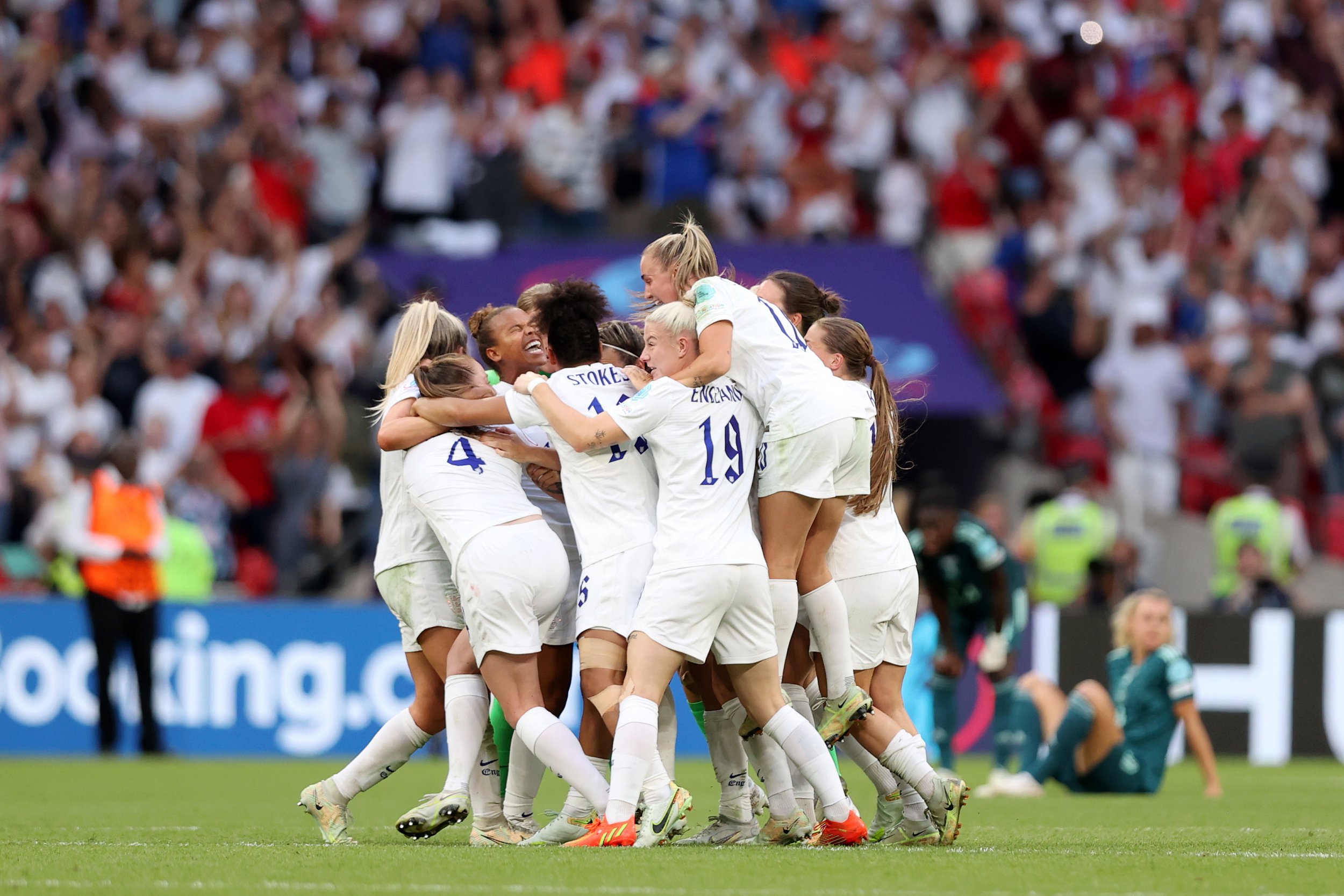
The race is on to secure the kind of legacy that they have wasted no time in demanding – but waited decades to be heard; one that supersedes and learns lessons from the sizzled efforts to get more people, especially women, into sports after the nation was captivated by the 2012 Olympic Games, a decade ago.
The Lionesses, leading by example, want a legacy for little girls that sticks and for that to happen, momentum, a lasting shift in attitudes to women’s team sport, and sustainable investment is needed so talent can access and rise through the game, say experts.
‘It falls to the whole of society to deliver a lasting legacy from this,’ explains Stephanie Hilborne, CEO of the charity, .
‘Government, governing bodies, sponsors, media and the major clubs have to take this totally seriously and recognise that women are owed major reparations from the past, making the need to step up more urgent.
‘We need coaches and teachers to call out bad attitudes in boys, towards girls, in PE and parents who care about this should make it clear to schools that they expect girls to experience exciting team sports.’
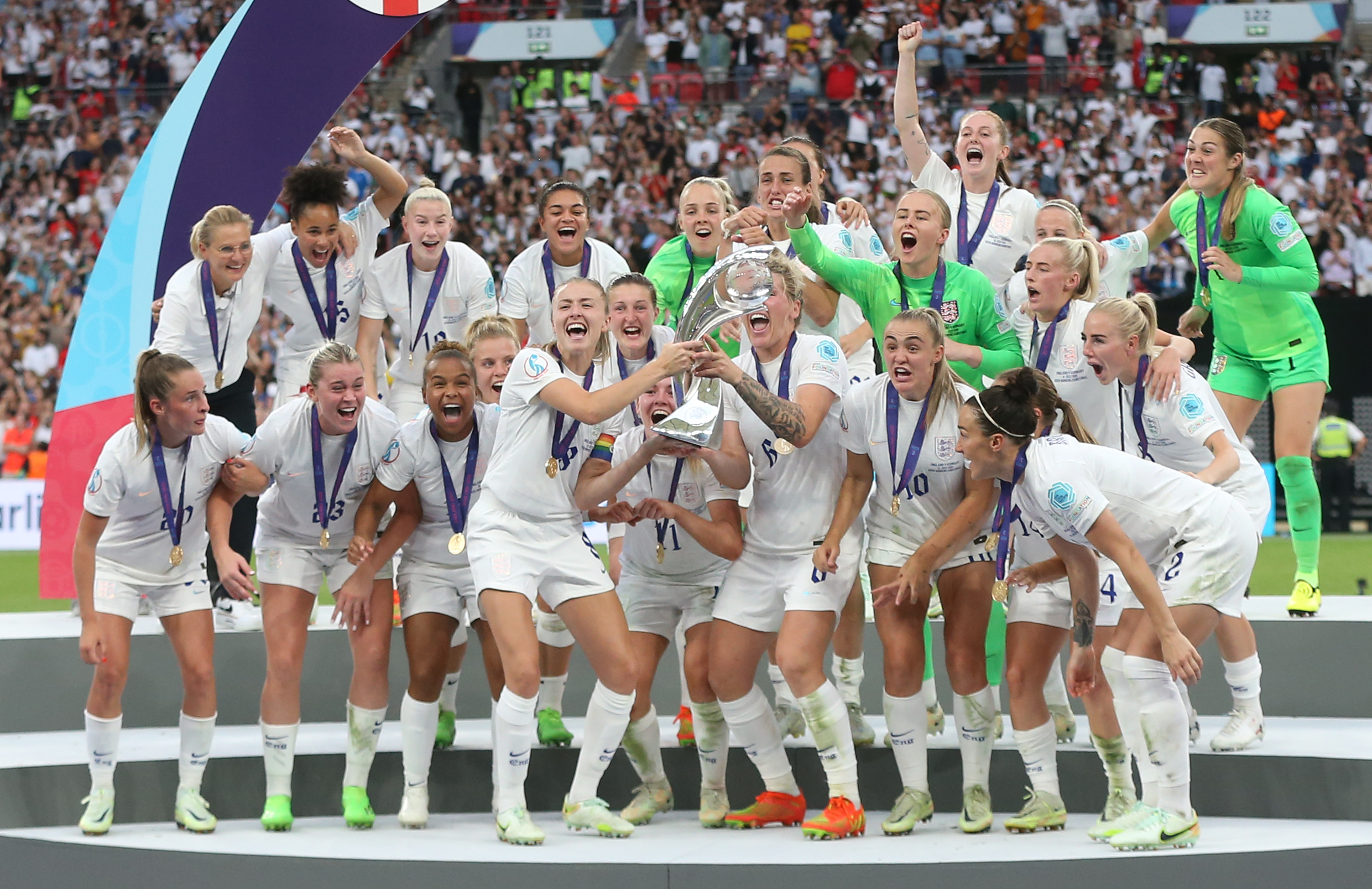
Hilborne says dads are particularly important in shifting attitudes, citing that only 30% support their daughters playing sport compared to 50% wanting their sons to compete.
Crucially, she says, regulation to ensure gender equality at the top of sport will propel lasting change, adding: ‘The Lionesses won’t hold the headlines forever. We need people in boardrooms and governing bodies who truly care. Real change will only be lasting when half of sports’ chief executives, chairs and performance directors are women.’
Presently, the charity estimates that only one in five of those positions in Britain’s top 20 sports, by participation, are held by women.
The Euros exposed a history of women’s exclusion from football – they were banned 50 years ago and only turned fully professional, in 2018, with the creation of the Women’s Super League (WSL) meaning players previously worked two jobs, effectively paying to play.
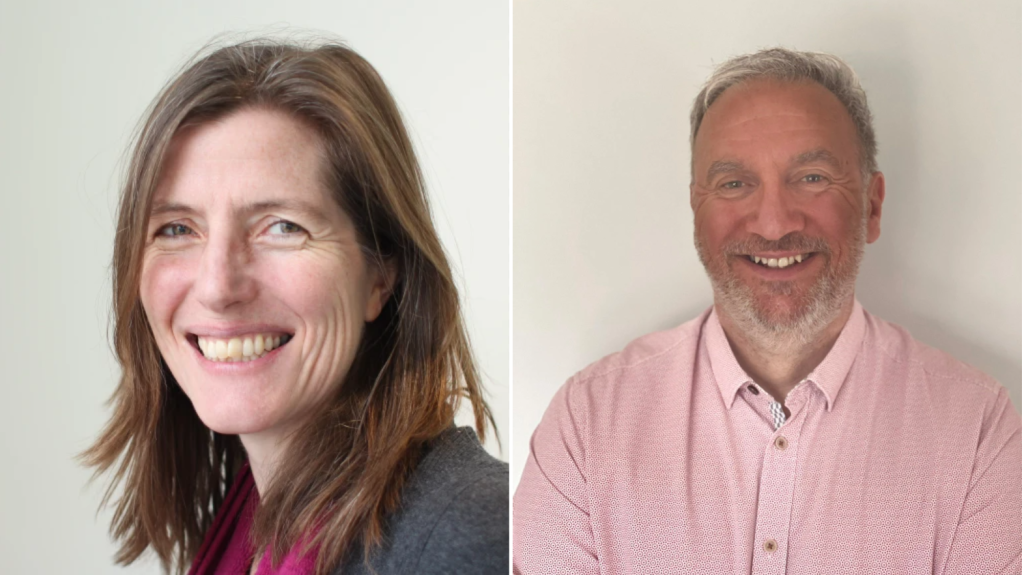
The hangover is a colossal gulf between the women’s game and the men’s. WSL players earn a reported average salary of £27,000, rising to £300,000 for its highest paid. In its second division, The Women’s Championship, they reportedly take home as little as £4,000-a-year.
Premier League broadcast rights are worth an eye-watering £10bn and season tickets cost up to £900; they start at £39 in the WSL. Meanwhile, the Lionesses will share a £1.3m bonus pot for winning the Euros compared to £5m promised to the men, had they won last year.
Nonetheless, money is about to pour into the game. Since Sunday’s victory, season tickets have sold out as has a headline clash against World Cup holders, the USA, at Wembley, in October.
Broadcast rights to next summer’s Women’s World Cup have been put out to tender, by FIFA, for the first time, too, having previously given them away to the BBC.
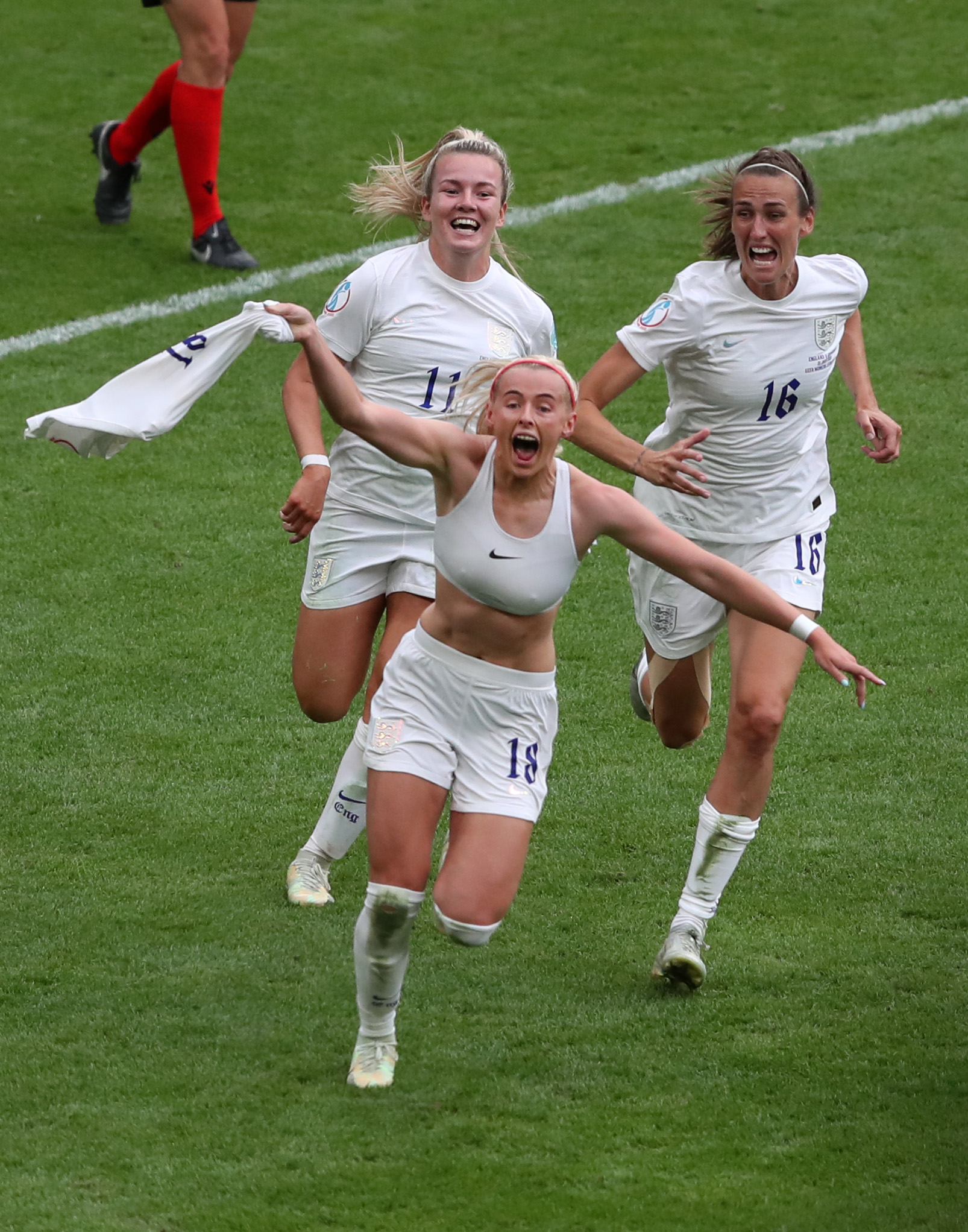
Kieran Maguire, author of The Price of Football, an expert in the finance of the game, says the Lionesses’ biggest stars can expect six figure sponsorship deals, adding that Chloe Kelly’s goal celebration, showcasing her Nike sports bra, was now ‘her pension’, given its huge marketing potential.
‘Blue chip companies now want to be associated with the joy of this game,’ he explains. ‘The money generated through the FA will drip feed into the WSL and into building facilities to boost the relatively small talent pool it can draw and develop players from. There are sponsors who would love to be associated with initiatives to build spaces for girls to play.’
Ahead of the Euros final, the FA announced plans to help 120,000 more schoolgirls play football. They have pledged, with government, equal access in 90% of schools, by 2024. And, in March, the government promised £230m for 8,000 new pitches and mutli-sports facilities, by 2025, 23 of those will now be named after Lionesses.
Maguire continues: ‘The success of the Euros legacy will be measured by how many girls are playing football in school in five years’ time. The Lionesses’ letter was fantastic; politicians must invest in and make time for PE in the curriculum.
‘Ten years after the Olympics, there aren’t many people who’ve taken up athletics and Emma Radacanu’s US Open win last summer didn’t translate into more girls taking up tennis. It requires action and momentum for this to be different.’
Football agents can also play a part, helping to broker brand deals that are right for both the players and the game’s future.
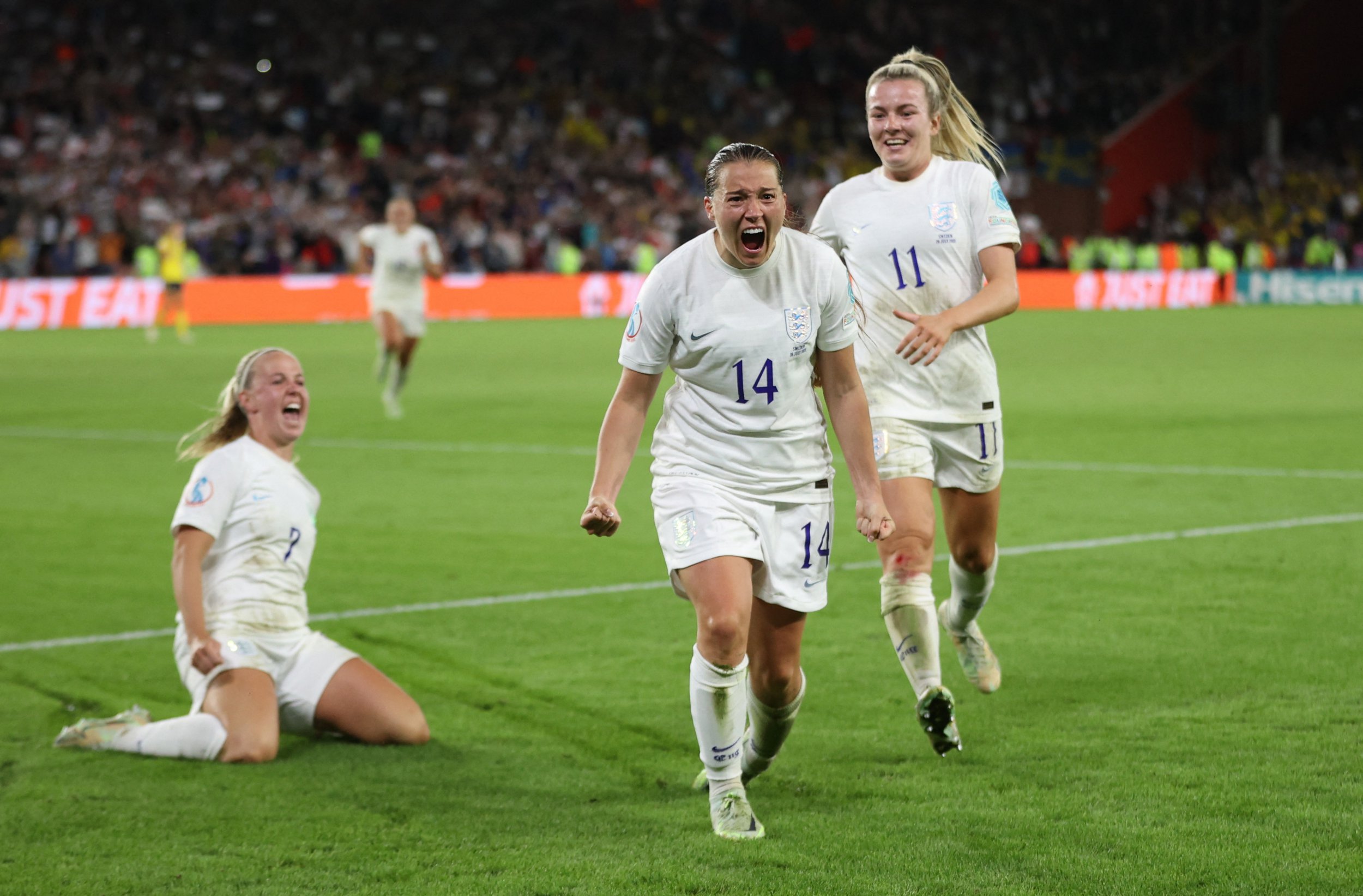
Georgie Hodge, head of women’s football at CAA Base, established the agency’s women’s division almost a decade ago and represents players including Lionesses goal-scorer Fran Kirby.
‘Even on Sunday night, after the final whistle blew, we were inundated by sponsorship and media requests,’ she says. ‘It was incredible to see how much bigger brands are now prepared to go, in terms of big-money, longer-term, global campaigns that weren’t on the table before. The Lionesses’ earning potential takes a huge jump now.
‘It accelerates a shift that has been growing over the last couple of years, including during the pandemic when marketing budgets were cut and brands couldn’t afford male stars. They turned to more affordable female stars with growing followings and they began earning more than they had before.
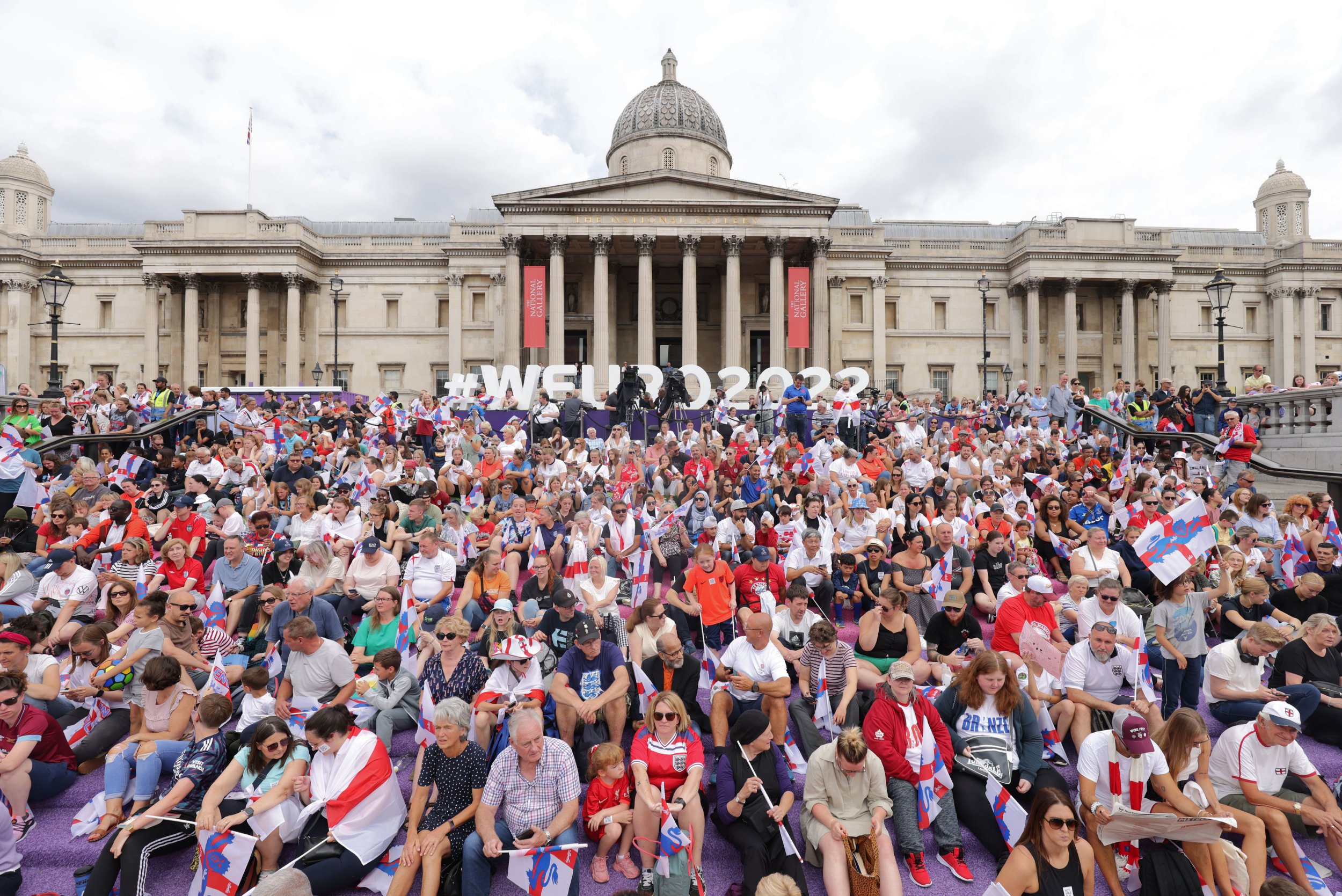
‘Now these players, who each have incredible stories to tell, are brands’ first choice and they’re in a position to say no,’ adds Hodge. ‘What we need to keep hold of is the authenticity and connectivity between players and fans which sparked all that joy during the tournament. That can very quickly change and is something that has disappeared from the men’s game.
‘A meaningful legacy would mean safeguarding that and working with companies whose values line up with players’ values. Right now that is getting money into the wider game, transcending into the WSL, grassroots football and elite pathways for girls.’
Bradley Rains, head of women’s football at Coda Independent Sports, represents Lionesses’ reserve goalkeeper, Hannah Hampton, and says players can now cherry pick the right endorsement deals to cement the legacy they want. ‘Agents have been plugging way at bigger brands for years,’ he explains.
‘Now, brands want to throw money at these players. This has been a watershed moment but the ideal sponsorship deal isn’t a knee-jerk reaction to the Euros. We have to make sure this sticks.’
The Lionesses’ victory has accelerated a slow-growing cultural and economic shift for women’s football. Their instant call to action has demanded a legacy.
‘The whole point now is longevity,’ adds Rains. ‘Deals that don’t just benefit the player but benefit the game. They have the platform for societal change and change within their own realm.’
Do you have a story you’d like to share? Get in touch by emailing [email protected]
Share your views in the comments below.




















